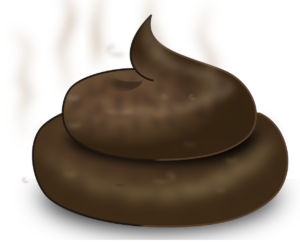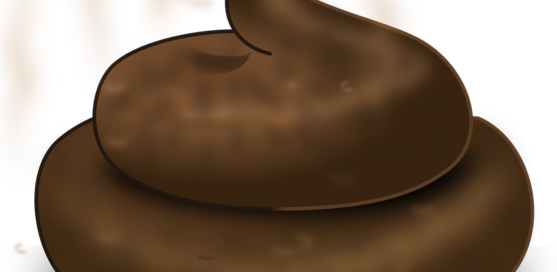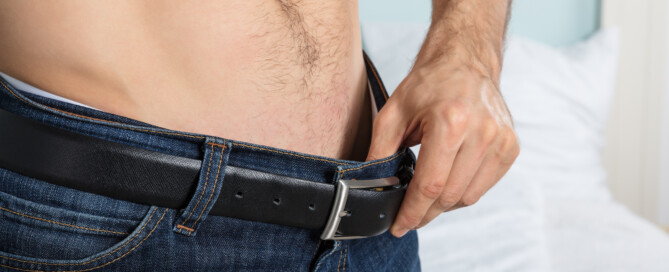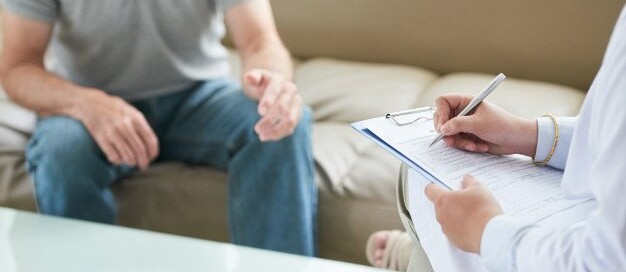Here’s Why You Poop Right After Meals

Why does it seem that almost every time you have a particular meal such as dinner or lunch, you have to poop immediately after?
Is there really a cause and effect relationship between when you finish a meal and when you have to poop? (more…)
Exercise Can Help Prevent a Massive Stroke; Best Exercises

There’s plenty of studies showing that exercise lowers the risk of suffering from a stroke, but what about outright prevention of a massive or severe stroke? (more…)
Do Really Foul Smelling Farts Mean You’re Not Healthy?

It’s been said (by an unknown number of laypeople) that very stinky farts mean GOOD health.
But can really foul smelling gas mean an illness?
Truth is, the only people seemingly capable of announcing that really bad smelling farts means that a person is healthy are those who have really wicked smelling farts.
It kind of gets them off the hook (or so they think) next time they let a really bad one rip.
The Link Between Stinky Gas and the State of One’s Health
“To my knowledge, such odors bear no signs of ill health,” says Morton Tavel, MD, Clinical Professor Emeritus of Medicine, Indiana University School of Medicine, and author of “Health Tips, Myths and Tricks: A Physician’s Advice.”
“Moreover, it’s unlikely that this will be subjected to future scientific analysis, since judgment of odor quality is highly subjective,” adds Dr. Tavel.
Is there really a such thing as nice smelling gas?
The passing of gas has a bad smell (except maybe to the person who’s doing it).
But let’s face it: Sometimes one’s farts reek a lot stronger or “worse” than they usually do. And why does this sometimes happen?
This is related to what a person has eaten.
For instance, if you’ve eaten a food that promotes the release of gas, the odor may be a lot more evil than what you’re used to.
This may occur if you’ve eaten a food with a high amount of inulin.
Inulin is a starchy substance that the “good” bacteria in your gut likes to feed on.
And when the bacteria do this, they release gas. And this can make you pass a lot of gas — that makes anyone near you want to hold their nose.
And we all know that farts smell the worst when they are passed by someone other than yourself.
But whether your health is good, decent or bad, the state of your health will not affect the smell of your gas.

Dr. Tavel’s medical research includes over 125 publications, editorials and book reviews in peer-reviewed national medical journals. He was formerly director of the cardiac rehabilitation program at St. Vincent Hospital in Indiana. mortontavel.com
 Lorra Garrick has been covering medical, fitness and cybersecurity topics for many years, having written thousands of articles for print magazines and websites, including as a ghostwriter. She’s also a former ACE-certified personal trainer.
Lorra Garrick has been covering medical, fitness and cybersecurity topics for many years, having written thousands of articles for print magazines and websites, including as a ghostwriter. She’s also a former ACE-certified personal trainer.
.
Top image: Shutterstock/9nong
Can Twitching in the Butt Mean Serious Medical Condition?
![]()
The butt has large muscles and when they begin twitching, this is hard to ignore.
“Twitching of various muscles are, in medical lingo, termed fasciculations, which are small, local, involuntary contractions of muscles in any location (usually outside the butt) that may be visible under the skin,” explains Morton Tavel, MD, Clinical Professor Emeritus of Medicine, Indiana University School of Medicine, and author of “Health Tips, Myths and Tricks: A Physician’s Advice.”
Common sights for fasciculations are the eyelid, a finger or toe, the arch of the foot, the calf and the front and back of the thigh.
But the butt, though not among the most common locations for twitching, can definitely develop this.
The three main muscles of the buttocks are the gluteus maximus, gluteus medius and gluteus minimus: the “glutes.”
Causes of Twitching Muscles
Dr. Tavel explains, “They arise as a result of spontaneous depolarization [de-charging] of nerve cells causing synchronous contraction of muscle fibers within a single group of these cells.
“Although fasciculations have a variety of causes, the majority are benign.
“They are encountered by virtually all healthy people, though for most, they are quite infrequent.
“In some cases, however, their presence can be rather annoying.”
The top reasons for a twitching muscle are exercise (particularly strenuous or prolonged), anxiety and mineral deficiency.
If your butt has been twitching lately, ask yourself if you recently did any glute-engaging exercise.

Shutterstock/Oleksandr Zamuruiev
More than once, the muscles in my butt were twitching away after I went on a long grueling hike.
The twitching wasn’t noticeable until I settled into a comfortable chair later on that day and began working on my computer. I then felt the fasciculations.
And the truth is, I LOVED them! They felt like the fingers of a deep tissue massager. I enjoyed this built-in massage!
Pathological Cause
Dr. Tavel says, “Unusually, they can also be due to disease of the nerve cells, in which case they are persistent and associated with other, more widespread muscular disorders.”
If your only symptom is the twitching in your butt (the type of twitching that you’ve very likely experienced many times with an eyelid), and especially if your rump muscles have very recently carried you through a Zumba class, running, strength training or yoga …
… then you should just relax, empty the fearful thoughts from your head and sleep like a baby.
“If a neurological examination and other tests are otherwise normal, a diagnosis of benign fasciculation syndrome is usually made, and it is best ignored,” says Dr. Tavel.

Dr. Tavel’s medical research includes over 125 publications, editorials and book reviews in peer-reviewed national medical journals. He was formerly director of the cardiac rehabilitation program at St. Vincent Hospital in Indiana. mortontavel.com
 Lorra Garrick has been covering medical, fitness and cybersecurity topics for many years, having written thousands of articles for print magazines and websites, including as a ghostwriter. She’s also a former ACE-certified personal trainer.
Lorra Garrick has been covering medical, fitness and cybersecurity topics for many years, having written thousands of articles for print magazines and websites, including as a ghostwriter. She’s also a former ACE-certified personal trainer.
Top image: Shutterstock/Pixelato by Pearl
Why Sex Can Make a Woman’s Bladder Feel Full

If having sex makes you feel like you have to pee or like your bladder is full, there are several reasons for this. (more…)
Can a Vaginal Yeast Infection Irritate the Bladder?

Can irritation of the bladder be caused by a vaginal yeast infection?
An irritated bladder is certainly a very annoying symptom, as it can make you constantly feel like you “have to go.”
Another symptom is leakage of urine.
Frequent trips to the toilet provide only temporary relief, if at all.
When women experience bladder related symptoms, they often assume that the source is a urinary tract infection.
But don’t dismiss the possibility that the vagina could be involved.
“Overgrowth of vaginal bacteria or yeast can cause bladder symptoms,” says Michael Ingber, MD, board certified in urology, female pelvic medicine and reconstructive surgery, and founder of The Center for Specialized Women’s Health, division of Garden State Urology.
“The bladder is found in front (anterior) of the vagina,” continues Dr. Ingber.
“Any infection which causes inflammation of the vaginal wall can directly irritate the bladder and cause bladder symptoms such as urinary urgency, frequency or leakage.”
Though these symptoms can also be caused by a urinary tract infection, a urinary tract infection cannot cause vaginal itching, dryness or burning.
Dr. Ingber continues, “Sometimes, the vulvar vestibule can get affected as well. This is the region just inside the labia minora (small lips of the vulva) but not inside the actual vaginal canal.
“The urethra opens up in this area. When the vulvar vestibule is inflamed from yeast infections, women can get symptoms of burning with urination.”
Other Symptoms of a Vaginal Yeast Infection
• Burning — also with intercourse
• Itching in the vaginal area
• Swelling of the vulva
• Redness of the vulva
• Vaginal discomfort or soreness
• Rash of the vagina
• Watery discharge
• Thick white discharge that resembles cottage cheese. It has no odor.
Most vaginal yeast infections are caused by the fungus Candida albicans.
If you have bladder related symptoms that last more than a day, make an appointment with your doctor.

Dr. Ingber is board-certified in Urology and Female Pelvic Medicine & Reconstructive Surgery; is a Fellow of the International Society for the Study of Women’s Sexual Health. The Center for Specialized Women’s Health, division of Garden State Urology & Atlantic Medical Group.
specializedwomenshealth.com
(973) 537-5557
 Lorra Garrick has been covering medical, fitness and cybersecurity topics for many years, having written thousands of articles for print magazines and websites, including as a ghostwriter. She’s also a former ACE-certified personal trainer.
Lorra Garrick has been covering medical, fitness and cybersecurity topics for many years, having written thousands of articles for print magazines and websites, including as a ghostwriter. She’s also a former ACE-certified personal trainer.
.
Top image: Shutterstock/Siriluk ok
Can a Bladder Infection Cause Vaginal Itching?

Vaginal itching is a very personal but highly annoying problem that many women have.
These same women may also have a bladder or urinary tract infection. (more…)
Penis Bleeds During Erections: Causes and Solutions

There are multiple possible reasons for a penis that bleeds during erections, including cancer. (more…)
Sharp Headache When Ejaculating? What Should You Do?

Do you suffer a sharp headache or head pain only when you ejaculate?
“The act of ejaculation causes a great deal of changes in your body,” says Jamin Brahmbhatt, MD, a board-certified urologist specializing in chronic testicular pain and infertility, and co-founder of Drive 4 Men’s Health, a nonprofit public engagement campaign that has encouraged millions of men to be more active, eat well and get preventive medical screenings.
If you get a sharp or severe headache, even briefly, every time you ejaculate, it may seem logical to consult with a urologist to get to the root cause.
However, think about it: The pain is in your head, not in your genitals.
Dr. Brahmbhatt explains, “It’s rare I see a guy that has a sharp headache with ejaculation.
“If it is a consistent problem I would send these patients for an evaluation with a neurologist (medical doctor of the brain).”
The problem may actually be emanating from your head. Or, it’s possible it may be originating from the muscles of your neck or related to a pinched nerve in the neck region.
The point is, you need to see a neurologist who may want to order an MRI to see if there is anything going on in the neck or head that could be causing a headache every time you ejaculate.
Dr. Brahmbhatt is a fellowship-trained microsurgeon and has helped advance the use of robotics for men with chronic testicular pain. Having been with Orlando Health since 2013 he serves as director of the Personalized Urology and Robotics (PUR) Clinic. Drive 4 Men’s Health
 Lorra Garrick has been covering medical, fitness and cybersecurity topics for many years, having written thousands of articles for print magazines and websites, including as a ghostwriter. She’s also a former ACE-certified personal trainer.
Lorra Garrick has been covering medical, fitness and cybersecurity topics for many years, having written thousands of articles for print magazines and websites, including as a ghostwriter. She’s also a former ACE-certified personal trainer.
.
Top image: Shutterstock/Andrey_Popov
What Kind of Pain Does Testicular Cancer Cause?











































